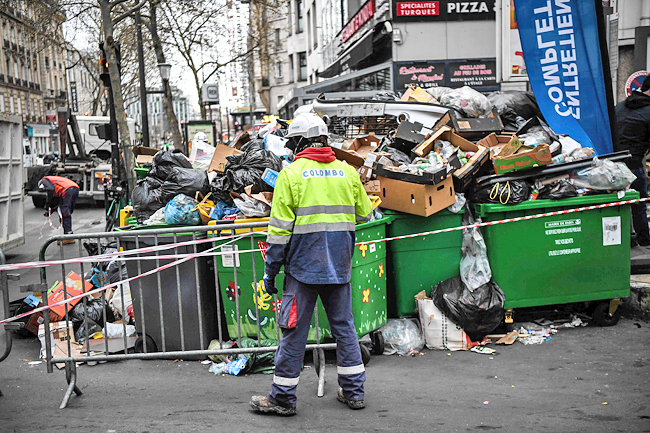Danial Norjidi
The United Nations (UN) General Assembly first proclaimed March 30 as International Day of Zero Waste on December 14, 2022 to promote sustainable consumption and production patterns and raise awareness about how zero-waste initiatives contribute to the advancement of the 2030 Agenda for Sustainable Development.
According to the UN website, member states, organisations of the UN system, civil society, the private sector, academia, youth and other stakeholders are invited to engage in activities aimed at raising awareness of national, subnational, regional and local zero-waste initiatives and their contribution to achieving sustainable development.
“The waste sector contributes significantly to the triple planetary crisis of climate change, biodiversity and nature loss, and pollution,” stated the UN on its website. “Humanity generates an estimated 2.24 billion tonnes of municipal solid waste annually, of which only 55 per cent is managed in controlled facilities. Every year, around 931 million tonnes of food is lost or wasted and up to 14 million tonnes of plastic waste enters aquatic ecosystems.
“Zero-waste initiatives can foster sound waste management and minimise and prevent waste, helping to address the triple planetary crisis, protect the environment, enhance food security and improve human health and well-being,” it said.
The observance of the international day is jointly facilitated by the UN Environment Programme (UNEP) and the UN Human Settlements Programme (UN-Habitat).

According to a UNEP and UN-Habitat press statement, the International Day of Zero Waste calls on rethinking practices and for embracing a circular economy, “which means reducing resource use and emissions to the environment throughout all stages of products’ life cycles, as a key for addressing the triple planetary crisis of climate change, nature loss and pollution, and putting the planet, and humanity, on a path to health and prosperity”.
The statement noted that promoting zero-waste initiatives through this international day can help advance all the goals and targets in the 2030 Agenda for Sustainable Development, including Sustainable Development Goal (SDG) 11 on making cities and human settlements inclusive, safe resilient and sustainable, as well as SDG 12 on ensuring sustainable consumption and production patterns.
To mark the international day, it was shared that businesses, governments, non-profits and more hosted events all over the world, including community information sessions, e-waste and food collection drives, fashion shows, photo exhibitions and conferences.
The UNEP, including through its One Planet Network and UN-Habitat undertake campaigns and concerted outreach efforts in the build-up to observations of International Day of Zero Waste on March 30 every year to continue rallying support and action on the importance of zero waste. “Waste management is critical to overcoming housing challenges, including how we manage our cities’ sanitation challenges and, indeed, the climate crisis,” said UN-Habitat Executive Director Maimunah Mohd Sharif. “It is central to improving the lives of people everywhere.”
In addition, UNEP Executive Director Inger Andersen said, “We need to act now. We have the technical expertise and the drive to innovate. We have the knowledge – both scientific and indigenous knowledge – to find solutions to the waste crisis.”
“The first International Day of Zero Waste is a real opportunity to build on local, regional and national initiatives to foster environmentally sound waste management and to contribute to the SDGs,” she added.
Meanwhile, in a statement to mark the occasion, UN Secretary-General António Guterres said, “Every year, more than two billion tonnes of municipal solid waste is created, but 33 per cent of it is not properly managed in controlled facilities.”
The secretary-general noted that, every minute, the equivalent of one garbage truck full of plastic is dumped into the ocean. “Meanwhile, pollution and chemicals are poisoning our water, air and soil. And a staggering 10 per cent of all global greenhouse-gas emissions come from growing, storing and transporting food that is never used”.
“We must stop trashing our only home and declare war on waste,” he affirmed. “We need those who produce waste to design products that use fewer resources and materials, while managing waste across production cycles and extending the lives of the products they sell.”
Guterres also highlighted the need to massively invest in modern waste-management systems and policies that encourage people to re-use and recycle everything from plastic bottles to ageing electronics:
“And as consumers, we must all consider the origins and impacts of the goods and products we purchase, and reuse and recycle what we can, whenever we can. It’s time to clean up our world, and make progress towards circular, zero-waste economies – for people and planet alike,” he added.






